Tour de France tech: The new bikes, tech and trends from the 2019 race
What the pro riders, mechanics and manufacturers are doing at the top of the sport
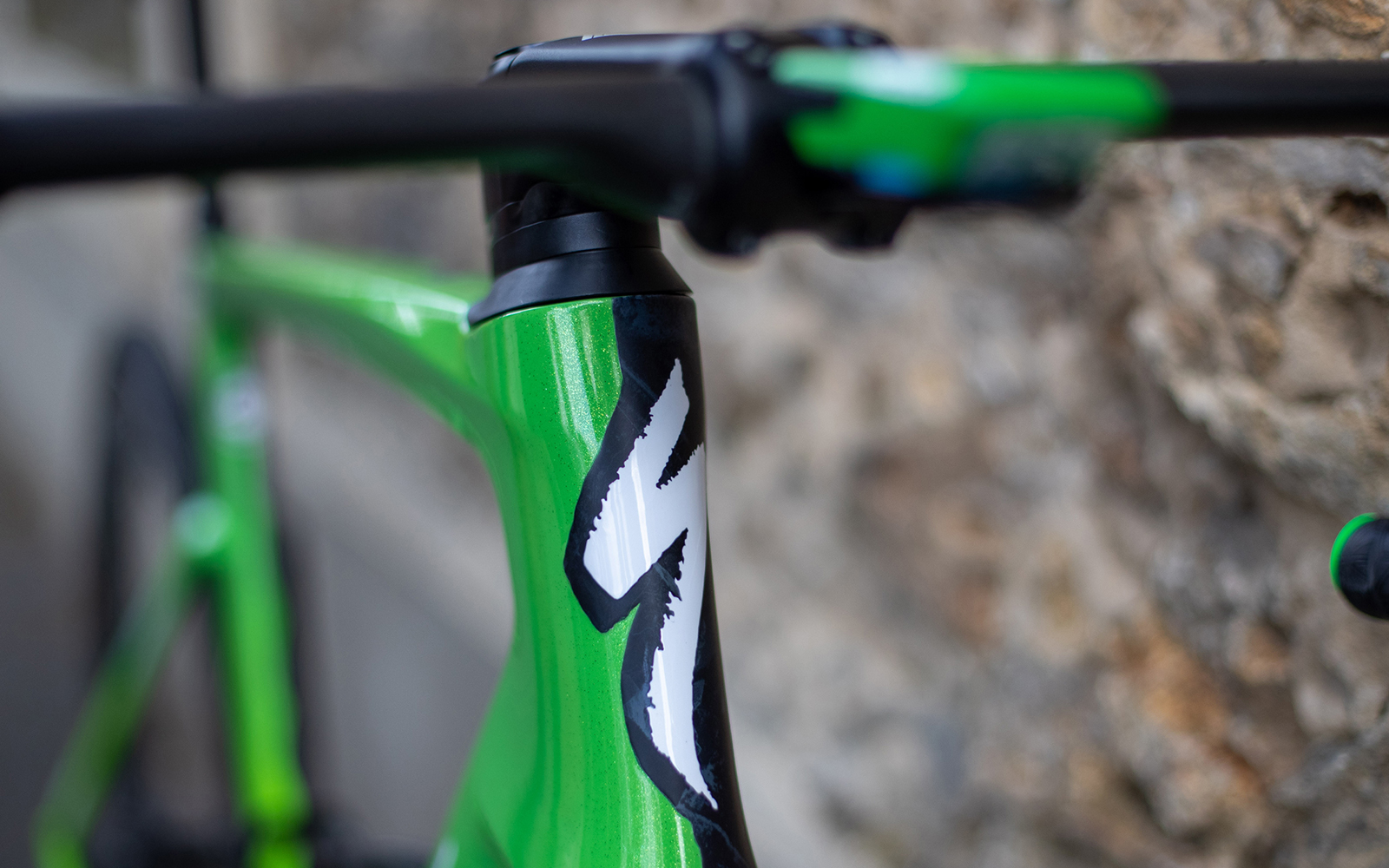
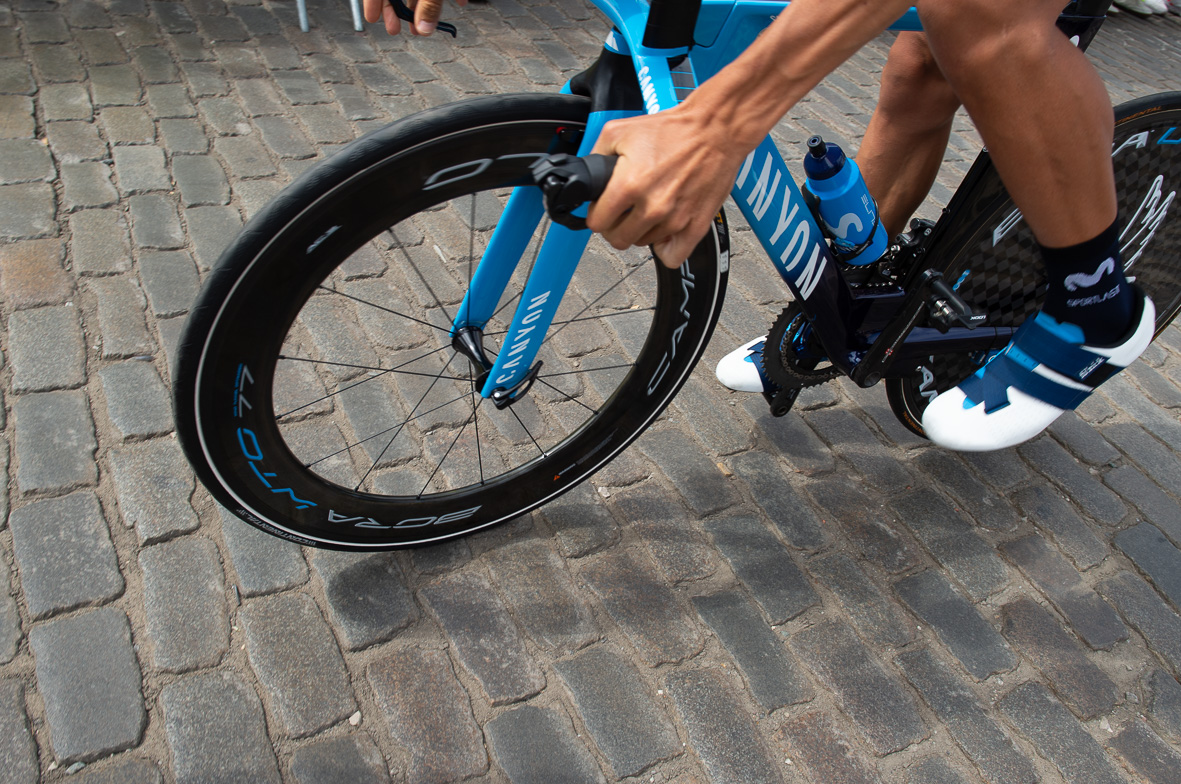
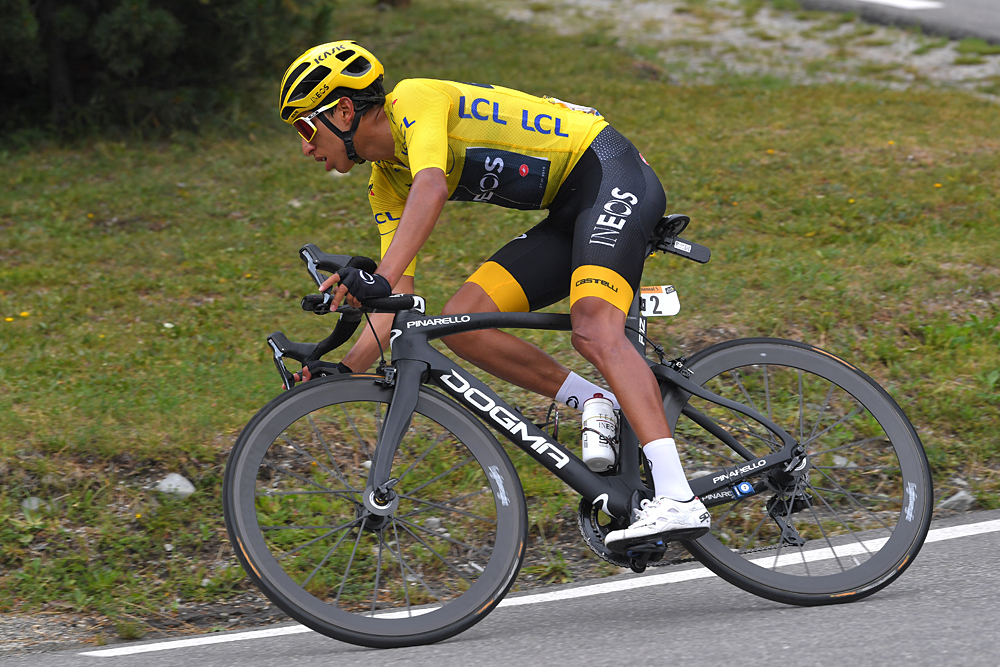
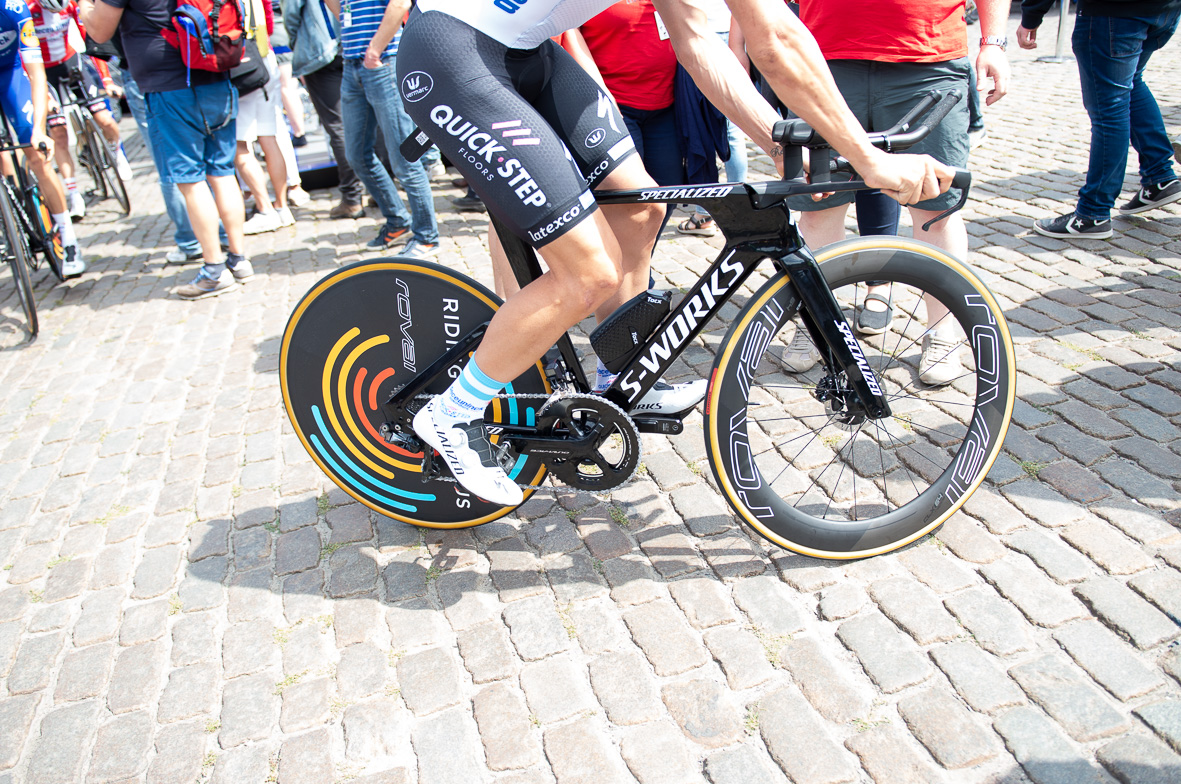
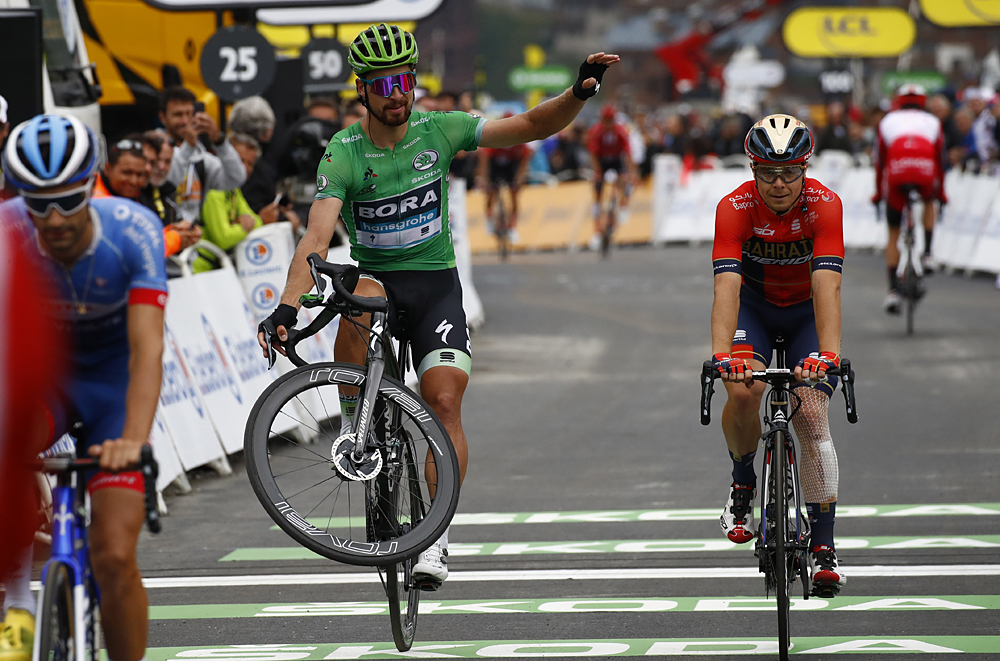
Egan Bernal (Team Ineos) became the youngest Tour de France winner in more than a century after 21 stages of racing, an unexpectedly long stint in the yellow jersey from Julian Alaphilippe (Deceuninck-QuickStep), an injury to Thibaut Pinot (Groupama-FDJ) that ended a true GC battle and some freak weather shortening two stages at the end of the race.
Alongside the captivating race, new bikes, tech, clothing, components and more were on show, plus the usual customisations of the latest national champions and special framesets for each of the race’s classification winners.
Here we take a look at all of the tech on show at the 2019 Tour de France, who won and with what, the winners and losers from bike and component manufacturers, plus all of Cyclingnews’ individual pro bikes from this year’s race.
Who won, and with what?
Here we list each stage winner, team, frameset, groupset, wheels and tyres (all tubular unless stated).
Stage 1: Mike Teunissen (Jumbo-Visma), Bianchi Oltre XR4/Shimano Dura-Ace R9150/Shimano Dura-Ace R9100/Vittoria Corsa Speed
Stage 2: Jumbo-Visma, Bianchi Aquila CV TT/Shimano Dura-Ace R9150/Pro Textreme/Vittoria Corsa Speed
Stage 3: Julian Alaphilippe (Deceuninck-QuickStep), Specialized S-Works Tarmac Disc/Shimano Dura-Ace R9170/ Roval CLX 50 Disc/Specialized S-Works Turbo
Stage 4: Elia Viviani (Deceuninck-QuickStep), Specialized S-Works Venge/Shimano Dura-Ace R9170/ Roval CLX 64 Disc/Specialized S-Works Turbo
Stage 5: Peter Sagan (Bora-Hansgrohe), Specialized S-Works Venge/Shimano Dura-Ace R9170/ Roval CLX 64 Disc/Specialized S-Works Turbo
Stage 6: Dylan Teuns (Bahrain-Merida), Merida Scultura/Shimano Dura-Ace R9150/Fulcrum Speed 55T/Continental Competition ALX
Stage 7: Dylan Groenewegen (Jumbo-Visma), Bianchi Oltre XR4/Shimano Dura-Ace R9150/Shimano Dura-Ace R9100/Vittoria Corsa Speed
Stage 8: Thomas De Gendt (Lotto Soudal), Ridley Helium SLX/Campagnolo Super Record EPS/Campagnolo Bora Ultra 50/Vittoria Corsa Speed
Stage 9: Daryl Impey (Mitchelton-Scott), Scott Foil RC/Shimano Dura-Ace R9150/Shimano Dura-Ace R9100/Pirelli P-Zero Velo
Stage 10: Wout van Aert (Jumbo-Visma), Bianchi Oltre XR4/Shimano Dura-Ace R9150/Shimano Dura-Ace R9100/Vittoria Corsa Speed
Stage 11: Caleb Ewan (Lotto Soudal), Ridley Noah Fast/Campagnolo Super Record EPS/Campagnolo Bora Ultra 50/Vittoria Corsa Speed
Stage 12: Simon Yates (Mitchelton-Scott), Scott Addict RC/Shimano Dura-Ace R9170/Shimano Dura-Ace R9100/Pirelli P-Zero Velo
Stage 13: Julian Alaphilippe (Deceuninck-QuickStep), Specialized S-Works Shiv TT/Shimano Dura-Ace R9170/Roval CLX 64 (front), Roval 321 Disc (rear)/Specialized S-Works Turbo Cotton clinchers
Stage 14: Thibaut Pinot (Groupama-FDJ), Lapierre Xelius SL/Shimano Dura-Ace R9150/Shimano Dura-Ace 9000/Continental Competition ALX
Stage 15: Simon Yates (Mitchelton-Scott), Scott Addict RC/Shimano Dura-Ace R9170/Shimano Dura-Ace R9100/Pirelli P-Zero Velo
Stage 16: Caleb Ewan (Lotto Soudal), Ridley Noah Fast/Campagnolo Super Record EPS/Campagnolo Bora Ultra 50/Vittoria Corsa Speed
Stage 17: Matteo Trentin (Mitchelton-Scott), Scott Addict RC/Shimano Dura-Ace R9170/Shimano Dura-Ace R9100/Pirelli P-Zero Velo
Stage 18: Nairo Quintana (Movistar Team), Canyon Ultimate CF SLX/Campagnolo Super Record EPS/Campagnolo Bora Ultra 50/Continental Competition ALX
Stage 19: N/A
Stage 20: Vincenzo Nibali (Bahrain-Merida), Merida Scultura/Shimano Dura-Ace R9150/Fulcrum Speed 55T/Continental Competition ALX
Stage 21: Caleb Ewan (Lotto Soudal), Ridley Noah Fast/Campagnolo Super Record EPS/Campagnolo Bora Ultra 50/Vittoria Corsa Speed
Wins by brand:
Frameset: Bianchi (four stages), Specialized (four stages), Merida (two stages), Ridley (four stages), Scott (four stages), Lapierre (one stage), Canyon (one stage).
The latest race content, interviews, features, reviews and expert buying guides, direct to your inbox!
Groupset: Shimano (15 stages), Campagnolo (five stages).
Wheels: Shimano (eight stages), Roval (four stages), Fulcrum (two stages), Campagnolo (five stages), Pro (one stage).
Tyres: Vittoria (eight stages), Specialized (four stages), Continental (four stages), Pirelli (four stages).
Compared to last year’s race, where Specialized framesets won seven stages and Shimano won 18, the spread across this year’s Tour de France in terms of wins by brand is much wider.
The main reason for this is most likely the parcours throughout the race, where we waited until the Tourmalet on stage 14 for the first true mountain test. The strength of Jumbo-Visma and Lotto Soudal also undoubtedly benefitted Bianchi and Campagnolo, respectively, compared to last year.
An array of new bikes have been launched this year but not all of them were successful at this year’s race. Specialized’s new Shiv TT frame was first seen at the Giro d’Italia in May but wasn’t officially launched until the build-up to the Tour. While the new Shiv TT wasn’t massively successful in the team time trial in Brussels – third and twelfth for Deceuninck-QuickStep and Bora-Hansgrohe, respectively – Julian Alaphilippe stormed to victory on stage 13 in Pau, with teammates Kasper Asgreen and Enric Mas also breaking into the top-ten on the new bike.
Another new bike that saw success was the Scott Addict RC ridden by Simon Yates (Mitchelton-Scott) to two stage victories. The new lightweight bike is disc brake only, features aerodynamic cues in the tube profiling, plus a frameset-specific integrated cockpit from Syncros.
Disc brake-equipped bikes winning mountain stages at Grand Tours is no longer an anomaly, however, one team to continually stick with rim brakes is Team Ineos. The team switched from Pinarello Dogma F10 to Pinarello Dogma F12 earlier this season when they morphed from Team Sky into the current team name and while the new F12 is available with disc brakes, Team Ineos have been seen nowhere near the modern braking system. Cyclingnews understands the team is very sensitive about their bikes' weight and that adding the additional weight outweighs any additional benefits of better braking. The British team even went as far as switching out their usual Shimano Dura-Ace R9100 wheels for self-funded Lightweight Meilenstein Obermayers in the pursuit of saving a few hundred grams. The question is whether this says more about Team Ineos' pursuit of perfection or the weight of their Pinarello bikes – especially when we know disc brake bikes can easily be built to 6.8kg.
Other new bikes that were launched in the build-up to this year’s race but weren't as successful include the Cannondale SuperSix Evo, Wilier Zero SLR and Colnago V3rs. None of which won a stage. The new Colnago wasn’t even seen being raced on by UAE Team Emirates at the race, suggesting the bike isn’t yet ready commercially and the question remains as to why the company would choose to launch a bike that isn’t ready when their launch details are likely to be lost in the sea of Tour news breaking all day, every day throughout the race.
While Shimano won an impressive 15 stages versus Campagnolo’s five, it is worth remembering that Shimano sponsors four times the amount of teams at the Tour de France compared to Campagnolo (16 for Shimano, four for Campagnolo). So, in terms of representation, Campagnolo is punching well above their weight.
The only real losers at this year’s race are SRAM, who after winning two stages at the Giro d’Italia in May through Ilnur Zakarin (Katusha-Alpecin) and Giulio Ciccone (Trek-Segafredo), were without a win during the biggest race of the year. Although a small conciliation will be the two days Ciccone wore the yellow jersey for Trek-Segafredo and SRAM alike.
New pro trends
As disc brakes continue to rise to prominence at the top of the sport (this year seven stages were won with disc brakes), another new technology has entered the WorldTour. Tubeless tyres took a first WorldTour victory with Alexander Kristoff (UAE Team Emirates) at Gent-Wevelgem in the spring and have continued to be used by the team.
It is worth saying, however, that while disc brake frames can now often be built close to the UCI minimum weight limit, traditionalist riders such as Vincenzo Nibali (Bahrain-Merida) and Rigoberto Uran (EF Education First) continue to opt for rim brake spec bikes.
Interestingly, Uran’s new Cannondale SystemSix Evo – another bike launched in the build-up to the race – is only available as a rim brake option in the entry-level version of the frameset as opposed to Cannondale’s range-topping Hi-Mod carbon. This shows that Uran is favouring rim brakes over a better quality frame, and possibly even a lighter or similar weight full build.
At the 2019 Tour de France, Deceuninck-QuickStep, Bora-Hansgrohe, Movistar Team, EF Education First and UAE Team Emirates were all seen racing with tubeless tyre setups and with claims of better rolling resistance, puncture protection and grip, it is only a matter of time until they become as prominent as disc brakes.
11-30 cassettes continue to be used by GC riders with the traditional 53/39 chainring combination, with sprinters often opting for larger chainrings on the flatter stages.
Scroll down to see all of the pro bikes, news and features from this year’s race.
Tour de France 2019 bikes, news and tech
- Tour de France bikes: Geraint Thomas' Pinarello Dogma F12
- Tour de France bikes: Peter Sagan's S-Works Venge
- Tour de France bikes: Julian Alaphilippe's Specialized S-Works Tarmac Disc
- Tour de France bikes: Elia Viviani's Specialized S-Works Venge
- Tour de France bikes: Patrick Bevin's Giant Propel Disc
- Tour de France bikes: Tim Wellens' custom Ridley Helium SLX
- Tour de France bikes: Simon Yates' Scott Addict RC Disc
- Tour de France bikes: Dan Martin's Colnago V2-R
- Tour de France bikes: Team Total Direct Energie Wilier Zero SLR
- Tour de France bikes: Julian Alaphilippe’s Specialized S-Works Shiv TT
- Tour de France bikes: Romain Bardet's Eddy Merckx StockEU69
- Tour de France bikes: custom framesets for 2019 classification winners
- Tour de France bikes: Oliver Naesen’s steel Eddy Merckx Corsa
- Tour de France bikes: Alex Dowsett's Canyon Ultimate Disc
- Tour de France bikes: Rigoberto Uran's Cannondale SuperSix Evo
- Team Ineos to use Muc-Off's '£6,000 chain' at Tour de France
- Specialized announce new Shiv TT bike for Tour de France
- Giant launches Cadex wheels and finishing kit at Tour de France
- Tour de France national champion jerseys – Gallery
- Tour de France news shorts – Tech edition
- Team Ineos racing on £5,000 Lightweight wheels at Tour de France
- Deceuninck-QuickStep ride electric road bikes on Tour de France rest day - Gallery
- Tour de France: Peter Sagan rides new Specialized e-bike on rest day – Gallery
- Colnago launch new V3Rs frameset
- Alaphilippe and Bernal wearing custom made TT skinsuits at Tour de France
- Specialized launch new Turbo RapidAir tubeless tyre at the Tour De France
- Tour de France mega tech gallery: 99 images from stage 2 team time trial
- Tour de France: Huge race tech gallery
- La Course by Le Tour de France - Tech Gallery
- Tour de France time trial national champions jerseys – Gallery
- Tour de France: Huge stage 13 time trial tech gallery
- Tour de France tech gallery: Shoes, sunglasses, helmets and aero socks